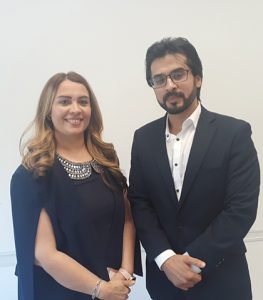Afghan woman honoured for poetry and community work
A poet, writer and TV presenter with a deep commitment to her community has won the Melbourne Afghan community’s peak women’s award.
Shugoofa Bakhtary is the 2022 Bakhtar Women of the Year, an award which acknowledges her “exceptional contribution, achievement, and commitment of Afghan women in Australia”.
 The award judges determined that she had achieved excellence in her field and made significant, observable services in the community.
The award judges determined that she had achieved excellence in her field and made significant, observable services in the community.
They said Shugoofa was an “inspiring role model for all Afghan women in the community and whose volunteer work had benefited the community and made a difference in other peoples’ lives”.
Shugoofa writes poems and articles and runs an online TV show that celebrates Afghan culture and connects the global Afghan diaspora.
Through the show, called ‘Watane-maa’, which is aired over Zoom, Shugoofa is trying to keep her Farsi language alive and introduce it to Afghan children living in western countries.
“We encourage people to connect and help each other,” she said.
“We give people a platform to share their poems, stories and song and we try to make it a vehicle for our art, music and culture.
“We record the show on Zoom and then we edit it and it is available online for a week,” Shugoofa said.
Shugoofa said the awards process was a fantastic experience.
“I was humbled and grateful the Bakhtar organisation chose me,” she said.
Life in Afghanistan for Shugoofa was near idyllic until the Taliban took control. She was born in Sheberghan, near Mazar-e-Sharif, a beautiful tranquil place until recently when it became the scene of the deaths of several women in violence sparked by the return of the Taliban.
“My dad was doctor so we had a good life in Afghanistan. I was accepted into the medical university in Mazar-e-Sherif,” Shugoofa said.
And it was at school in Sheberghan that she began writing poetry.
“I would react to anything sad or emotional that I saw but when I left Afghanistan I stopped writing,’ Shugoofa said.
“From young age I read books and wrote poems and songs to understand and feel things around me.
“My poetry and my medical studies give my both childhood and adulthood essence and confidence. I have learned through my life experiences that we all struggle with the same things: how to live, how to love, how to make peace with ourselves.
“For my poems and songs to resonate, the listener and reader has to put their own frame around it, so it can hang on their own wall. A good poem or book and song can stimulates feeling without dictating what is felt,” she said.
Shugoofa and her family were forced to leave Afghanistan in 2000 for Pakistan after the Taliban took control. She and her family lived there for three years before coming to Australia.
She had completed her medical studies but had to return secretly to Afghanistan to sit an exam that would secure her diploma.
It was in Canada that Shugoofa met her future husband Arif Amarkhail. He was an Afghan-American visiting relatives.
After a 12-month long-distance relationship, they were married in 2010 and now have three children.
“My husband has helped me a lot with my life and my work. He takes care of the kids so I can work and write,” Shugoofa said.
“Men in Afghanistan don’t let women do things publicly. But Arif encourages me to be a voice for our people and for the women of Afghanistan,” she said.
Having a family and her community focus made it difficult for Shugoofa to resume her medical studies but she has committed herself to promoting the interests of Afghan women in Australia and around the world.
And the events of last year which saw the Taliban retake power and the security situation deteriorate in Afghanistan prompted Shugoofa to start writing again.
“Last year I couldn’t keep it inside me and I started writing again,” she said.
“I was very upset. I cried for a couple of weeks. I would wake up in the middle of the night and cry for the people of Afghanistan.
“I was writing about what was happening in my homeland and sharing it on my Facebook. People asked me to write more.
“When I began writing my intent wasn’t to save the entire world as much as to heal myself as a young passionate woman from broken memories of war and trauma.
“But now I write to make people understand the tragedy of what has happened in my homeland and especially the situation of women there. I also write to encourage other women across the world to stand up for what they believe,” Shugoofa said.












